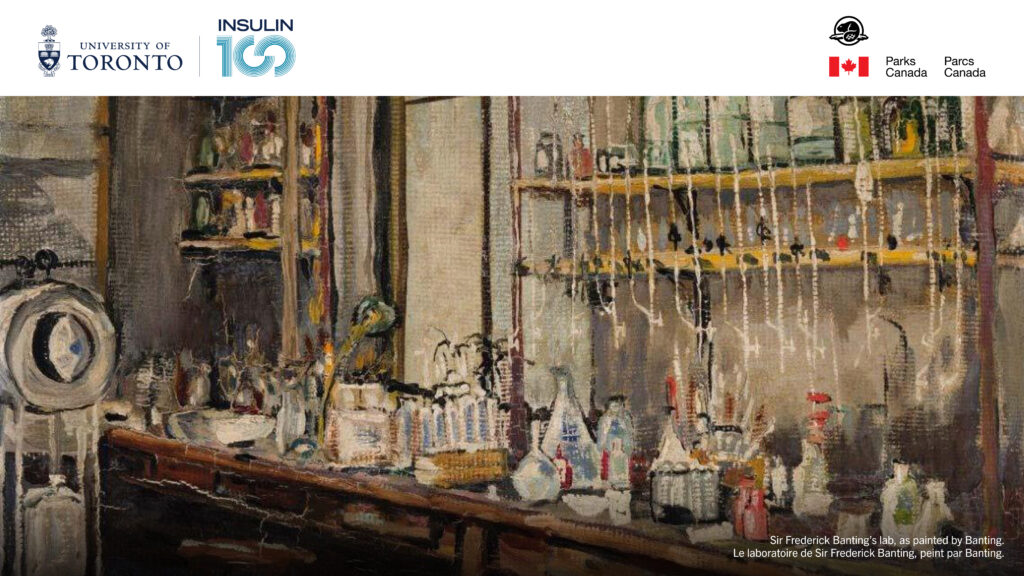JDRF and CIHR Announce Recipients of New Grants to Accelerate Stem-Cell Based Therapies for Type 1 Diabetes
To mark November’s National Diabetes Awareness Month, JDRF is excited to announce a new investment of $6 million to support two Canadian research teams as part of the JDRF-CIHR Partnership to Defeat Diabetes to help accelerate development of stem cell-based therapies for type 1 diabetes (T1D).
These new studies make possible the reality of eliminating the need for insulin injections for those living with T1D. There are more than 300,000 Canadians living with T1D, an autoimmune disease with no known cause or cure, resulting in the dysfunction, damage or loss of pancreatic beta cells that produce insulin in our bodies. People with T1D must treat themselves with insulin several times per day to keep their blood glucose levels normal and despite their best efforts; they often experience serious and even life-threatening complications.
Stem cells show great promise as a source of insulin-producing cells that could be transplanted to provide a new source of insulin that replaces dysfunctional, damaged or lost pancreatic beta cells. Canada has a remarkable legacy leading discoveries in this area. Stem cells were discovered in Toronto in 1961; and in 2000 a team in Edmonton pioneered a protocol for transplantation of pancreatic islets (the part of the pancreas that contains insulin-producing cells) that produces insulin independently in many patients who undergo the procedure. These achievements represent important steps toward a treatment that will allow people with T1D to live healthy lives without daily insulin injections.
The two research teams are being led by Dr. Maria Cristina Nostro, Senior Scientist at the McEwen Stem Cell Institute at University Health Network and Associate Professor at the University of Toronto, and Dr. Francis Lynn, Associate Professor with the Faculty of Medicine at the University of British Columbia and an Investigator at BC Children’s Hospital. These teams will build on Canada’s demonstrated research excellence and leadership in clinical islet transplantation, stem cell biology, diabetes, immunology and genetic engineering to accelerate stem cell-based therapies for T1D. Teams will work in collaboration with other Canadian researchers to tackle some of the biggest scientific challenges that impede our progress in this area and move us closer to a future where people with T1D no longer rely on insulin therapy.
Dr. Maria Cristina Nostro’s Research Team

Dr. Maria Cristina Nostro and her team have received funding to use new transplantation strategies and apply universal donor stem cells to develop a superior islet-like product for people with T1D that will require little or no immunosuppression.
Islet transplantation could help T1D patients regain control of blood sugar levels, making this an alternative to insulin injections as the only existing treatment. However – donor scarcity, poor islet survival after transplant, the need to optimize the transplant site and the need for life-long immunosuppressive treatment in order to prevent transplant rejection mean this treatment is only accessible to a handful of people with T1D.
Dr. Nostro’s team will leverage their expertise in stem cell biology, vascular biology, islet transplantation and beta cell biology to address these challenges and work to develop a safe and effective clinical-grade product for therapy.
The outcome from these studies will accelerate universal donor stem cell-based T1D therapies.
Dr. Francis Lynn’s Research Team

Dr. Francis Lynn and his team will also be working towards developing a cure for T1D by replacing insulin-producing cells via transplantation.
Dr. Lynn’s team aims to use their combined expertise in single cell technologies, genome editing, immunology, and stem cell and islet biology to produce a new and improved cell source for cell replacement therapy in diabetes. Ideally, the new cell source will be ready for clinical trial testing in a few years.
Advances made by these research teams could not only transform the lives of thousands of Canadians living with diabetes, but also greatly reduce the tremendous economic and health burden that diabetes places on Canada today. This research may also ultimately benefit people with insulin-requiring type 2 diabetes (~30% of cases), further broadening the potential impact.
JDRF Canada is proud to support these two teams, who will carry out exciting and ambitious cell replacement research. As we approach the centenary of the discovery of insulin, we remain committed to funding research that moves beyond insulin therapy, eventually providing people with T1D freedom from their disease. This announcement is an important step in that direction.


